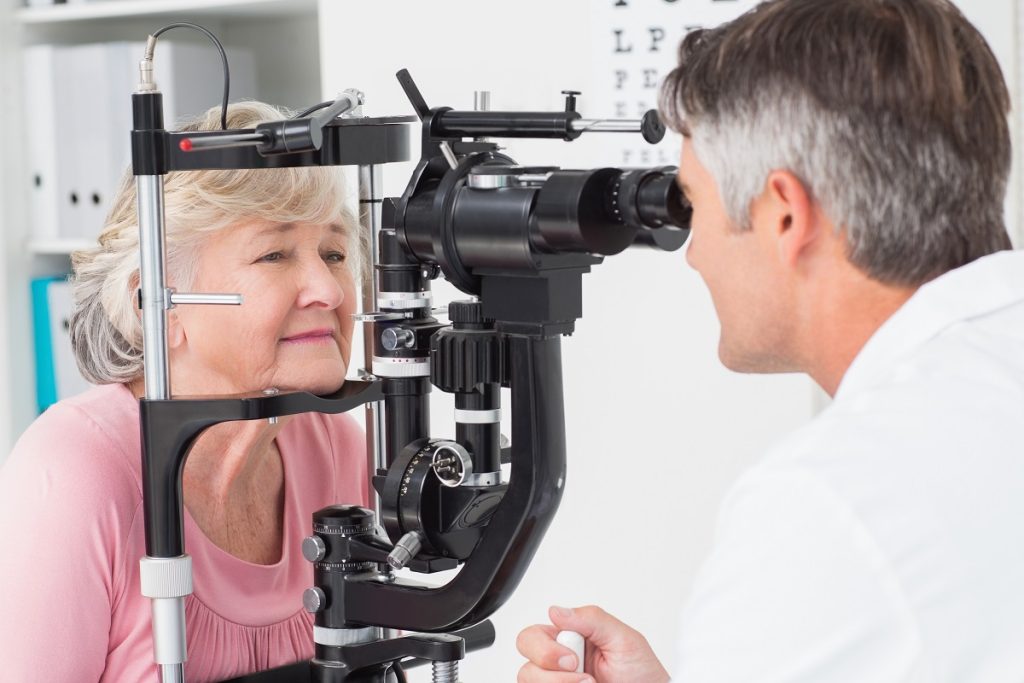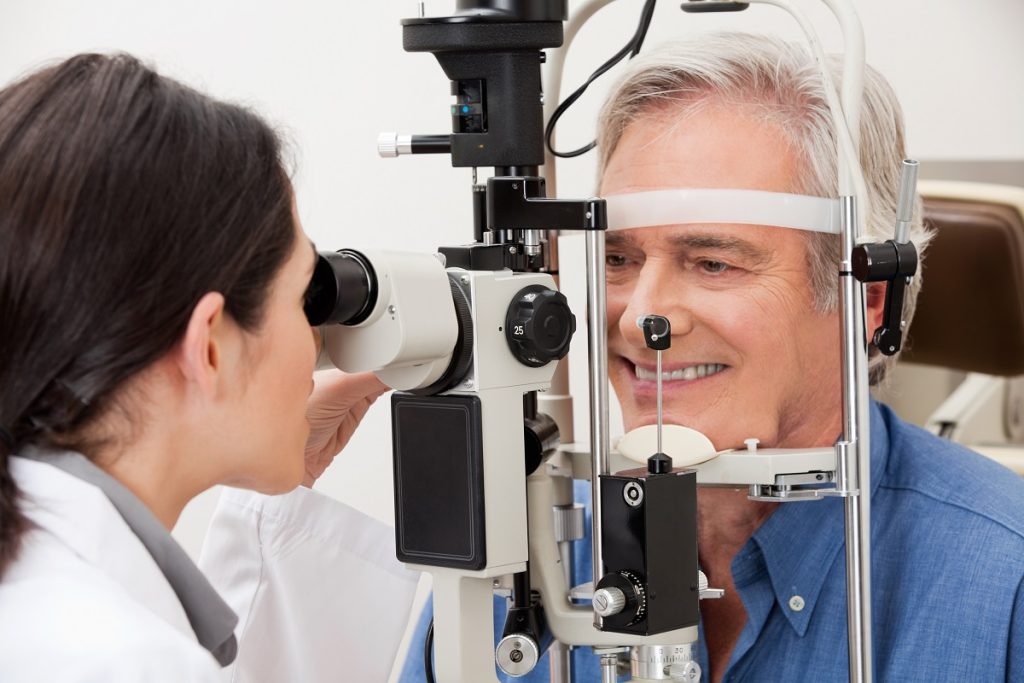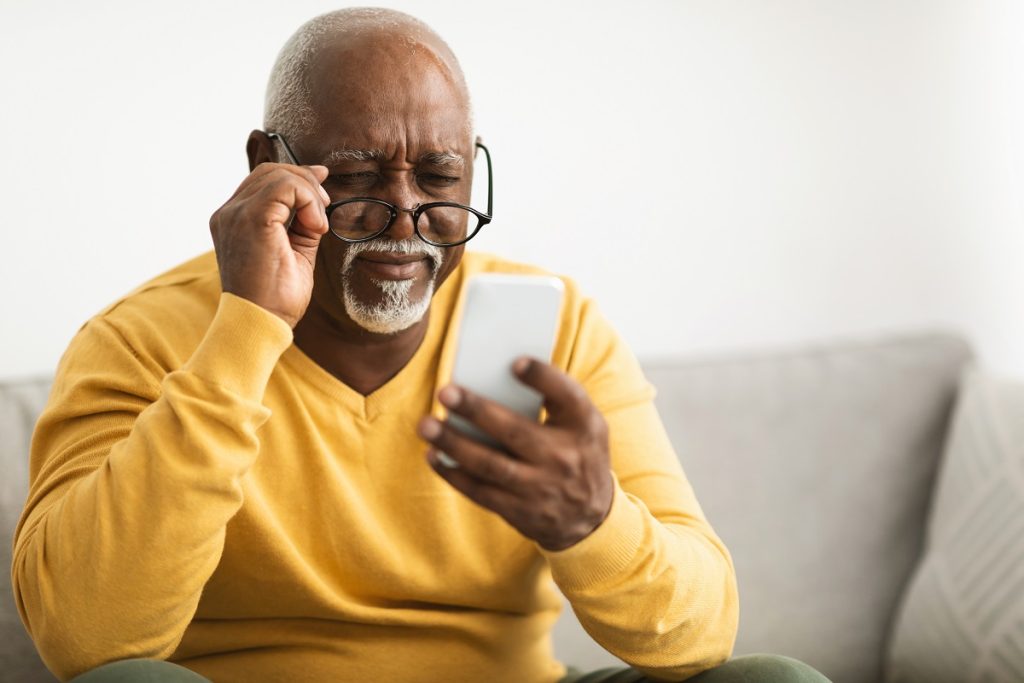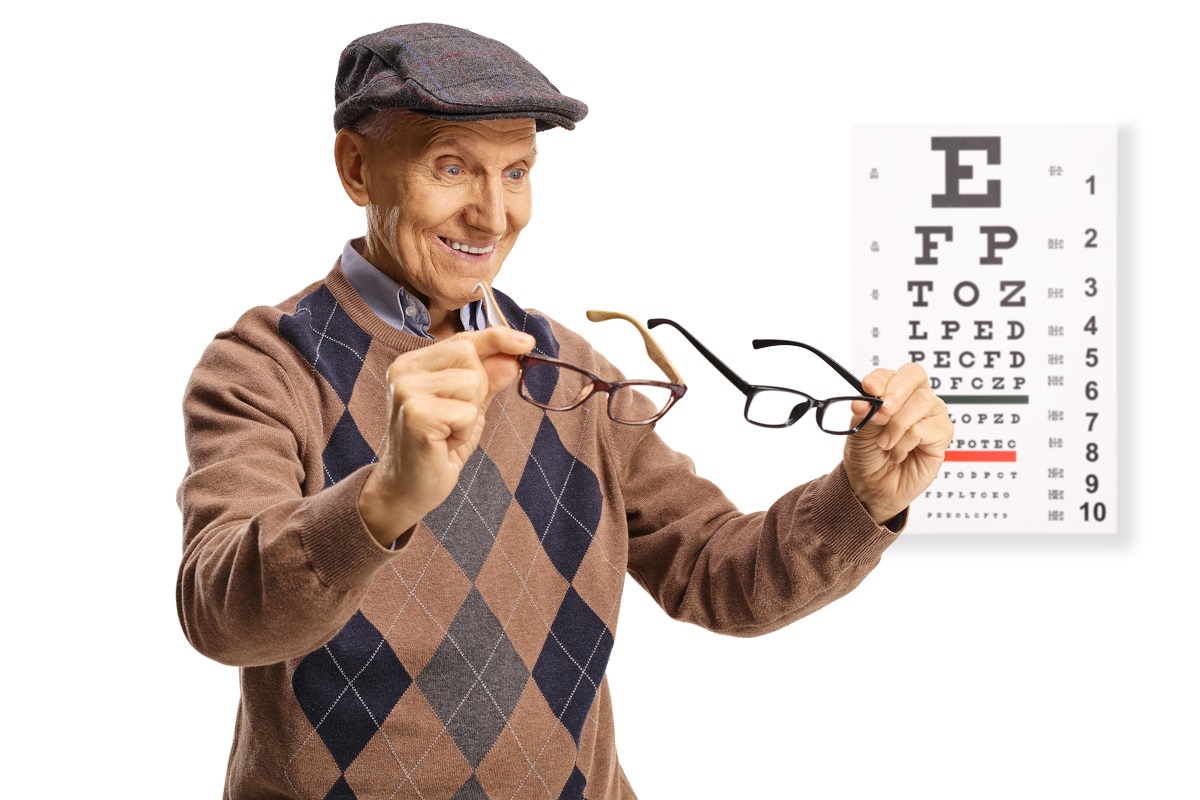For seniors, seeing their eye doctor for an annual exam is as important as seeing their primary care physician. The elderly are subject to eye conditions such as cataracts, diabetic retinopathy, macular degeneration, retinal tearing, and glaucoma, which can lead to distorted vision and even blindness.
Eye care professionals from both the American Academy of Ophthalmology and the American Optometric Association recommend that those over 65 have a senior eye exam every year or two. This is more frequent than the two to three years recommended for those 55-65, as the chance of vision loss increases with age.
Why Should Seniors Have An Annual Eye Exam?
The risk of vision problems increases as you get older, yet most eye conditions have no signs or symptoms. Keeping your prescription up-to-date is essential for optimum sight, but the real reason for frequent exams is to check for any serious eye conditions that could lead to vision loss or blindness.
Older adults should have an annual eye exam for early detection of eye problems when the issue is highly treatable. Exams should be more often if they have any of the following:
- An underlying condition that puts them at a higher risk for eye problems (i.e., diabetes)
- Wear contact lenses or eyeglasses
- Have a family history of eye disease or vision loss
- Take medications that can affect their eyes

What Type Of Eye Professional Should A Senior See For The Exam?
An Ophthalmologist or an Optometrist should perform a senior eye exam. They both can perform vision screenings, prescribe eyeglasses and contact lenses, and diagnose common eye disorders, but for the treatment of complex eye diseases or surgery, you will need to see an Ophthalmologist.
What Does An Eye Exam For Seniors Include?
A comprehensive eye exam for older adults will consist of:
- A thorough health history, including current medications, corrective lens strength, medical diagnoses, family history, vision problems, and allergies.
- Tests to verify eye health and check depth perception, color vision, eye muscle movements, peripheral vision, and how the pupils respond to light.
- A visual acuity test to measure the clarity and sharpness of vision at a distance of 20 feet.
- Checking the eyes pressure to rule out glaucoma.
- Dilating the pupils so the physician will do a retinal examination by looking at the optic disc (optic nerve head), retina, and blood vessels in the back of the eye.
- A slit-lamp examination to examine eyelids, lashes, cornea, iris, lens, and fluid chamber between your cornea and iris.
- A keratometry/topography exam to measure the curvature of your eye if you want contact lenses.
The results of your eye exam will determine if you need corrective lenses, an adjustment to your prescription, additional testing, surgery, or treatment with medication.

What Conditions Should The Doctor Check For?
At your next eye care exam, your optometrist or ophthalmologist should check for six potentially serious conditions: cataracts, diabetic retinopathy, macular degeneration/age-related macular degeneration (AMD), retinal tearing, glaucoma, and dry eyes.
Why?
- Cataracts cause blurred vision due to cloudy areas in the eye’s lens. This condition is commonly corrected with cataract surgery.
- Diabetic retinopathy occurs when blood vessels in the tissue at the back of the eye (retina) and can cause anything from vision loss to blindness. This condition, common among diabetics, has no early symptoms, but managing your diabetes can prevent or slow its progression. Your ophthalmologist can use medication, laser, or surgical treatments to slow or reverse changes.
- Age-related macular degeneration (AMD) blurs the center of your vision, which is needed for driving and reading. There are treatments available and dietary supplements that can limit its development.
- Retinal tears (retinal detachment) present with sudden vision changes, such as an increase of floaters or flashes of light and a shadowed curtain over your visual field. Retinal tears require immediate medical treatment.
- Glaucoma results from increased pressure inside the eye. If it goes untreated, it could lead to visual impairment or blindness. But, it is treatable with eye drops, lasers, or surgery.
- Dry eyes result from your tear ducts not working correctly and present with the feeling of itchy, burning eyes and the feeling of something being in your eyes. Treatments include eye drops, ointments, humidifiers, air purifiers, tear duct plugs, or surgery.
Many of these eye conditions are treatable and reversible, which is why regular eye exams are very important for early detection. In addition to aging, things like family history, high blood pressure, and diabetes put you at a higher risk for developing these health conditions.
What Is The Best Time Of Day To Have An Eye Exam?
The best time of day to have an eye exam is in the morning when your eyes will be most rested, and you will have more focus. But, if afternoons work better for you, that is fine also. You want to go to your wellness check when you feel refreshed.

Who Pays For Senior Eye Exams?
Your insurance provider typically covers vision screenings.
Original Medicare (a government insurance program for people over 65 and younger with disabilities) does not cover routine vision screenings or eyewear. But, if you have any of the following health problems, Medicare will help cover the cost:
- AMD
- Diabetes
- High-risk glaucoma
- Cataracts
If you have Medicaid, the coverage differs by state but should cover annual senior eye exams.
There are also Medicare Advantage plans (Part C) that offer additional benefits.
For those without insurance coverage, yearly exams may be out of pocket. However, there is help for those who need help.
EyeCare America offers comprehensive exams to individuals age 65 and older for free. They also provide care to people with an increased risk for glaucoma.
The U.S. Department of Veterans Affairs (VA) will cover the cost of routine eye exams and preventive vision services for veteran or service member who qualifies for health services from the VA.
Many eyecare chains such as Lenscrafters offer reasonably-priced exams with an optometrist, while some may offer free eye exams with eyeglass specials.

